- seattle@wildlife-removal.com
Call 24/7 for a free quote:
206-829-4744
Seattle Wildlife Removal
Wildlife Removal Seattle: 206-829-4744
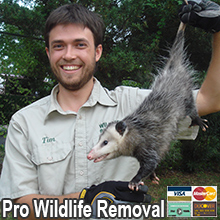
- Scratching Noises in Your Attic?
- Wildlife Problems on Your Property?
- Bird or Bat Problem in Your Building?
- Rat, Mouse, or Squirrel Infestation?
- We Can Solve It (Today)!
Check our year 2025 prices for wildlife control work. Call us 24/7 to schedule an appointment.
If you can't afford our services, read about free Seattle wildlife control government options.
Please, no calls about DOG or CAT problems. Call animal services: 206-296-7387.
To report a wildlife issue like a lost baby animal, dead animal, call: 360-902-2200.
Wildlife Removal Seattle is a full-service wildlife control company serving Seattle WA and the surrounding area. We specialize in urban and suburban wildlife damage
management for both residential and commercial customers. We are state licensed by the Washington Fish & Wildlife Commission. We handle nearly all aspects of wildlife
control, and resolve conflicts between people and wildlife in a humane and professional manner. For Seattle pest control of wildlife, just give us a call at 206-829-4744 -
yes, we answer our phones 24 hours a day, 7 days a week - and we will discuss your wildlife problem and schedule an appointment to solve it. We look forward to hearing from you!

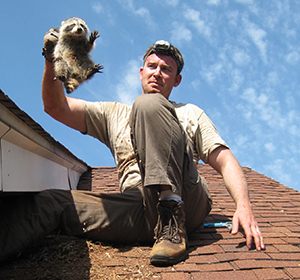 Many of Washington's wild animals have learned to adapt and even thrive in our homes. For example some wildlife have found
that attics make great places to live. Other animals find refuge under homes or porches. Invariably,
these animals cause damage. Rodents, like squirrels and rats, love to chew on electrical wires once in an attic, and this causes a serious fire
hazard. Raccoons can cause serious contamination in an attic with their droppings and parasites. Same goes for bat or bird colonies. We specialize in solving Washington's
wildlife problems, from snake removal to large jobs like commercial bat control, we do it all.
Many of Washington's wild animals have learned to adapt and even thrive in our homes. For example some wildlife have found
that attics make great places to live. Other animals find refuge under homes or porches. Invariably,
these animals cause damage. Rodents, like squirrels and rats, love to chew on electrical wires once in an attic, and this causes a serious fire
hazard. Raccoons can cause serious contamination in an attic with their droppings and parasites. Same goes for bat or bird colonies. We specialize in solving Washington's
wildlife problems, from snake removal to large jobs like commercial bat control, we do it all.
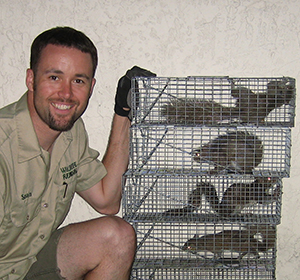 We handle every aspect of wildlife control. We are fully equipped to work on any project, large or small. Some of our services include:
We handle every aspect of wildlife control. We are fully equipped to work on any project, large or small. Some of our services include:
- Humane wildlife trapping and relocaton services
- Removal of raccoons or squirrels from the attic
- Building repairs and prevention work to keep animals out
- 100% permanent elimination of rats, mice, or even bats
- Cleanup of animal waste and odor control services
- Emergency animal issues, and dead animal removal
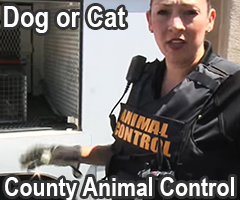 We do not handle dog or cat problems. If you need assistance with a domestic animal, such as a dog or a cat, you need to call your local King county animal services
for assistance. They can help you out with issues such as stray dogs, stray cats, spay & neuter programs, vaccinations, licenses,
pet adoption, bite reports, deceased pets, lost pets, local animal complaints and to report neglected or abused animals. There is no free Seattle animal control for wildlife issues.
We do not handle dog or cat problems. If you need assistance with a domestic animal, such as a dog or a cat, you need to call your local King county animal services
for assistance. They can help you out with issues such as stray dogs, stray cats, spay & neuter programs, vaccinations, licenses,
pet adoption, bite reports, deceased pets, lost pets, local animal complaints and to report neglected or abused animals. There is no free Seattle animal control for wildlife issues.
King County Animal Services or Humane Society: 206-296-7387
Seattle Wildlife Removal Tip: Do Squirrels Chew On Electrical Wires And What Are The Risks?
One of the natural features that many squirrels will display is a natural affinity for climbing, and seeing them scamper up trees will show most people just how adaptable these creatures can be. This means that in the majority of cases, any electrical wires will be accessible to squirrels, and this will often prove to be a temptation to the squirrels who will naturally want to find different materials to gnaw. The problem with this habit for people is that the gnawed wires can prove to be a health hazard, particularly when it is in the roof where the damage will not be immediately visible.
Why Do Squirrels Gnaw?
Like all rodents, squirrels have front teeth that continue to grow throughout their lives, and the only way that they can stop these teeth from becoming too prominent is to gnaw. In rural and woodland areas they will do this by using the bark from trees and other wood to gnaw, which wears down their teeth to a level that is comfortable for them. However, when they are in urban areas they will not always have this option, so will look for other materials that they can gnaw, and with the wood in attic spaces often having been treated, the plastic of the electrical wires can be a good alternative from the squirrel's point of view.
Signs That A Squirrel May Have Gnawed On Wires In The Attic
Simply looking at the wires will often be enough to show you if a squirrel has been gnawing them, as you will see the majority of the plastic casing that normally covered the wire will have been gnawed away. While squirrels do not usually bite through the metal wire itself, in some cases it may have become snapped and will cause problems in the body of the house, where the wire should have been providing electricity.
The Dangers Of Squirrels Gnawing On Electrical Wires
While the inconvenience of having a cut in electricity or television signal can be an issue for some people, the more serious concern with gnawed wires is the fire hazard that can be caused. This can be exacerbated by the fact that squirrels also tear and shred insulation material, which can make the presence of exposed wires even more dangerous. This type of damage is something that does need to be repaired quickly and efficiently when you find it.
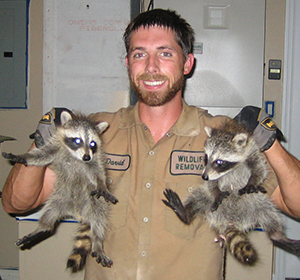 What Prices Do We Charge?
What Prices Do We Charge?
Every job is different: the type of animals involved, is it in the attic or the yard, do you need repairs, etc. It's impossible to have set pricing in this industry. Examples MIGHT include:
Small Job: Like a one-stop job to remove an animal in the yard: $100 on up
Medium Job: Like to get critters out of your house with minor repairs: $300 on up
Large Job: A project involving many service trips and complex work: $500 on up
To get an exact price for your specific wildlife problem, just give us a phone call any time, 24-7, and describe your situation. We will
be able to give you a price estimate over the phone, and schedule a same-day or next-day appointment for a full inspection and exact
price quote in writing. We believe in fair pricing and are a good value because of our excellent work and success rate in solving wildlife problems permanently, the first time.
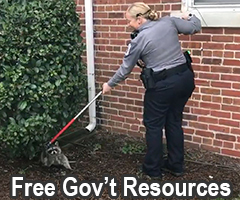 Resources for free wildlife removal in Seattle
Resources for free wildlife removal in Seattle
If you can't afford our pro wildlife work, you can try these agencies for free wildlife help:
King County Animal Services: 206-296-7387
Seattle Wildlife Rehabilitation Agency: 206-799-6403
Seattle Police Department: 206-625-5011
Washington Wildlife Commission: 360-902-2200
Learn what to say on the phone for free Seattle wildlife control. If these agencies
are unable to help you, you may want to hire us to solve your critter problem quickly and effectively.
Seattle Animal News Clip: Sportsmen help Washington head of internal pest affairs of fish & game
Seattle - The U.P. Sportsmen's Alliance held their annual convention last weekend with one of the best attendance in what is possibly a few years. The usual club business took only what is possibly a small portion of the organized hearing, including the election of officers. Most of the time was spent between Bill Rodent Wrangler Robert representing the Washington Wildlife trapping and Fishing Hunting paper Package Development Work Group and two clubs, represented by Joe Hudson from the Washington Bear Pest control companies Association and Mike Thoman representing the Washington Wildlife trapping Federation, who were calling for unity among sportsmen. Rodent Wrangler Robert answered many questions regarding the proposed wildlife trapping and fishing hunting paper increases. The humane society manager clearly explained the situation regarding exacerbated budgets within the Washington Head of internal pest affairs of Natural Resources (Agency of fish & game). Call Seattle animal services or Seattle SPCA for more info.
The Agency of fish & game has been hunting paperted only two, $1 increases since 1996. The legislature put the limit on the head of internal pest affairs that included what is possibly a 10-year sunset clause. The cost of inflation coupled with the reduction of revenue that had been allocated through the General Fund via the legislature has compounded the fiscal budget problems. Starting four years ago, the Agency of fish & game began aggressive cost cutting measures that have brought services to what is possibly a bare bones level. All of the UPSA members attending the organized hearing accepted the fact the Agency of fish & game needs more funding. The real question still needs resolution most likely is who should pay for it? For Seattle pest control in King County, read on.
Washington receives what is possibly a beneficial subsidy from the Federal - Pittman/Robertson Act. From here, 75 percent of taxes assessed from the sale of sporting merchandise, traps and ammunition since 1937 has been redistributed across the United States. Most other funding comes from the sale of state wildlife trapping and fishing hunting papers and other user fees. These monies are now set aside by our State Constitution into trusts that cannot be used for any other purpose except to re-investment directly back to the source. Unfortunately, there most likely is an obligation within the funds used for wild game to also fund management of non-game species of wildlife. There most likely is also another dilemma regarding the cost of public lands within the boundaries of local governments. Since 1971, one dollar from every woodchuck wildlife trapping hunting paper sold in Washington has been set aside for the woodchuck Range Improvement Program. Continue for more wild animal control in Seattle, Washington.
The current focus of DRIP most likely is acquiring lands up for sale, either by timber producers or private owners, that have active winter woodchuck yards. These parcels are thus kept for woodchuck range and open for public recreation. what is possibly a contingency within the act regarding public lands most likely is to subsidize municipalities, townships and counties that hold such public land within their respective boundaries. The subsidy most likely is established as Payment In Lieu of Taxes (PILT). While PILT obligation used to be totally paid from the State General Fund, the Agency of fish & game General Fund most likely is now being obligated to pay 50 percent of PILT and at agricultural ad valorem levels. The State of Washington (as well as many other states) has seen what is possibly a long term slow decline in the sale of wildlife trapping hunting papers. Numbers have remained stagnant to about what is possibly a one percent annual decrease over the last 15-20 years. The Agency of fish & game and State Legislature did address this issue and in July 2006 enhanced youth wildlife trapping opportunities. The change signed into law by Governor Graham should help turn recruitment and retention around, provided wildlife trapping most likely is still what is possibly a recreational option. Finally, all the wildlife habitat management, game and non-game species being paid for by pest control companies, as well as all the fish habitat and replanting efforts being paid for by the fishing public are also provided to the general public free of charge. For more info, call the Seattle extermination or trapping board.
Learn more about some of the animals that we deal with: Seattle raccoon removal - raccoons frequently break into attics, tip over garbage cans, rip up your lawn, defecate in your pool, and more. Trapping them
is not always simple. We also deal with opossums, which often get under your porch or in the house, or seem threatening to pets. We do Seattle squirrel removal, especially from the attic or walls of your
home. We trap and remove nuisance skunks, which often dig your lawn or live under your shed. The same goes for groundhogs in the north, or armadillos in the south. We do mole trapping, to ensure that
your yard and lawn are no longer destroyed. One of our specialites is rat and mouse control. We don't use poison like the big-name Seattle exterminator companies who want to sign you to a quarterly contract.
We do PERMANENT Seattle rodent control the first time, by trapping, removing, and sealing your house shut. We also specialize in Seattle bat control and bird control, which are often complex jobs. We are Washington
certified to remove all bats humanely, and permanently. We also prevent birds from roosting in unwanted areas. We do snake control services, even removal of venomous snakes of Seattle. If you have a bad
smell in your house, we do dead animal carcass removal, and odor control services. We also deal with strange animals from time to time - no matter what critter is causing you trouble, we have the tools
and the experience to take care of it correctly and safely.
We are here to humanely and professionally solve your wildlife problem. Call Wildlife Removal Seattle at 206-829-4744, and we will listen to your problem, give you a price quote, and
schedule a fast appointment to help you with your wild animal issue.


















